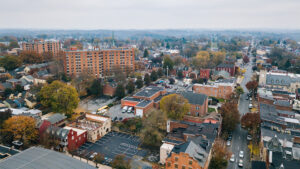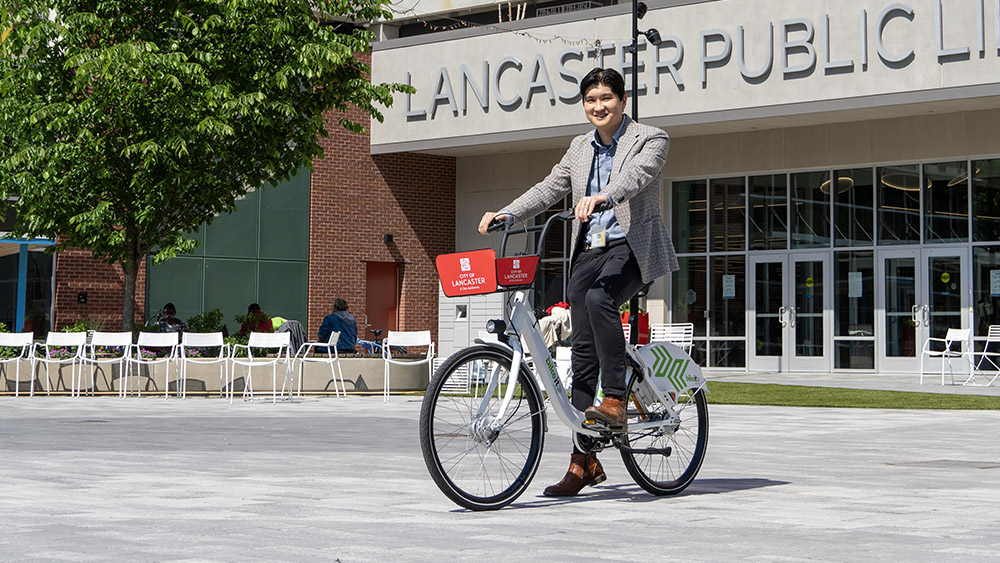By Bryant Heng
Bloomberg Harvard City Hall Fellow, City of Lancaster
In the summer of 2022, I came to the United States and found myself a student again, dependent on public transportation to commute and find my way. In Cambridge, MA I didn’t need a car and I could move around by walking, using the subway (T-lines), commuter rail, and bus. I also started cycling and found all the available transportation options worked well for me.
Upon graduation in the summer of 2023, my wife Zipporah and I moved to Lancaster, PA. I initially found it challenging to find the right transportation information and available services in Lancaster. Without adequate signage, bus shelters or information on Google Maps, I found it difficult to locate the nearest bus stop. Once I found the bus stop, I encountered other barriers, like the lack of sidewalks and crosswalks in some areas.
I lost the sense of independence I had while using public transit, and I realized I needed a car to get around Lancaster. Ride-sharing platforms like Uber and Lyft are available in Lancaster but are costly and not sustainable long term. I eventually saved up to buy my own vehicle, but vehicle ownership comes with additional costs. The Bike It! Lancaster bike share could be an affordable alternative, but the lack of consistent bike infrastructure presents another set of challenges.
 Lancaster is characterized by clear urban and rural dynamics which also creates differences in transportation needs, service coverage and gaps. Traffic safety initiatives such as Vision Zero and the creation of more pedestrian and bike lane infrastructure are needed in the region to increase traffic safely for all actors.
Lancaster is characterized by clear urban and rural dynamics which also creates differences in transportation needs, service coverage and gaps. Traffic safety initiatives such as Vision Zero and the creation of more pedestrian and bike lane infrastructure are needed in the region to increase traffic safely for all actors.
I am aware and realistic about the fact that public transportation involves and relies on significant public sector financing from the Federal, State, County and Local governments. Nonetheless, it is an essential public service that needs to be available and accessible for all residents. It’s not all doom and gloom as there are public transit services and options available in Lancaster. However, you do need to know where to find the right resources, such as local apps and websites, in order to navigate the system.
There is a sense of recognition that we can do better in Lancaster and transportation service and infrastructure improvement initiatives are undertaken in the region. As transportation services and infrastructure improvements are rolled out in Lancaster, I am curious to hear what Lancastrians have to say and how these developments are experienced. I am also looking at reducing my own reliance on the car. In Cambridge, biking became my preferred mode of transportation and I sincerely hope this can be the case here in Lancaster as well. But coming from the Netherlands, I guess that should not be a huge surprise.
Bryant Heng is a Bloomberg Harvard City Hall Fellow studying how Lancaster City can make transportation better. Learn more here.
